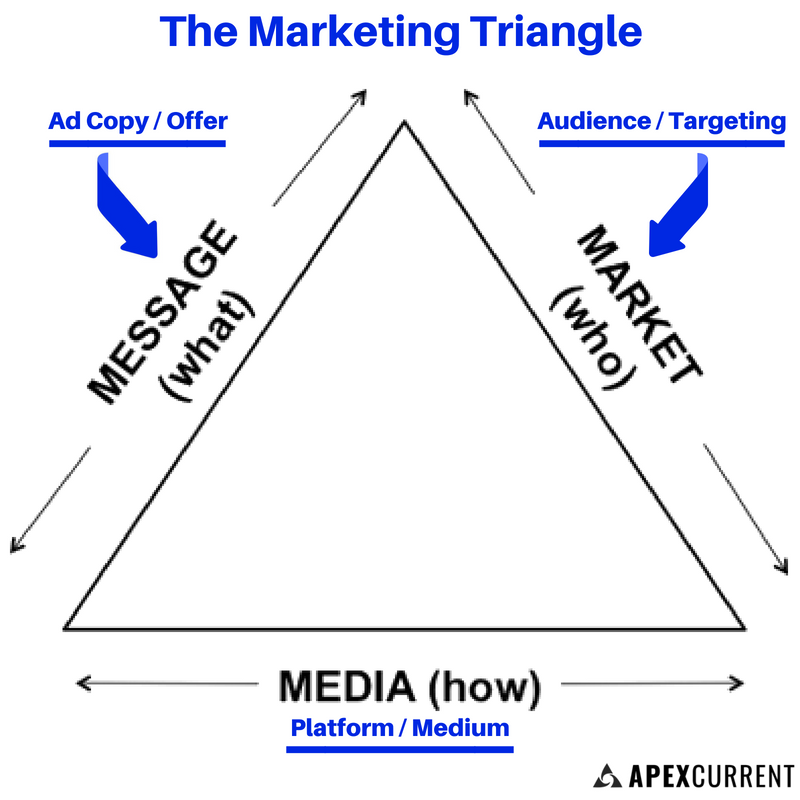I hear these two little potentially damning words all the time from clients sizes no matter the company's size or specific industry. In corporate America where I spent over a decade, these two words were more than commonplace from the executive staff.
These words are not just isolated to marketing campaigns. It can really form in any ideation process and the reality is unless you're talking about your flavor of ice cream, style of clothing, etc. they shouldn't be used. Certainly, not as Gospel...
The sentence always starts or ends or has somewhere in between two words that can be damning to any ad campaign and those two words are, “I like.”
“I like this color on this section of the page.”
“I like the way this (insert whatever here) looks.”
“THIS is what I like.”
I guess from the outset it doesn’t sound like such a bad thing, right? The client should be able to express to you their preferences and to that I would say, "you're absolutely correct!" But, often times when “I like” or whatever that really subjective personal preference is trumps what matters, that's where we get into trouble.
So, what is it that truly matters over our client's preferences or our own? What is it that truly matters when creating your campaign? It seems like in many situations almost the antithesis of “I like” is “what works.” What works is objective because it’s based on data and historical evidence of key learnings. Specifically, key learnings that are proven, time tested and drive campaign results.
These tactics and methodologies drive results not because, we at Apex or any marketer worth their salt wants it a certain way, but because it’s tested based on the marketplace. Those many rounds of testing lead to refinement that create these key learnings.
You see we live in a free market economy here in the US (as well as any many other countries today) and that free market votes with their hard-earned dollars.
As the marketplace makes certain decisions they, in essence, vote by either saying "yes" and taking the action or completing the goal you've set for your campaign (leads, sales, app installs, downloads, etc.) or saying "no" not completing the goal. As they vote up or down we iterate each campaign and it is improved upon to find what works.
This is not some sort of blanket-type where one refined campaign for product/service-type A will translate over to product/service-type B. Each one is certainly unique as the offer, product/service and/or marketplace changes.
Dan Kennedy's marketing triangle displays this idea quite perfectly. Changing one of these three factors creates a new iteration process. But, you can take those historical key learnings and refined processes to the table which overtime lead to better decision making processes out the gates.
The emotional attachment to what a client likes based on their arbitrary preferences doesn’t matter at the end of the day and can prove detrimental to any campaign... Especially if those likes or preferences are not allowed to be iterated upon properly.
As marketers and specifically on the performance-driven side of things where Apex lives, we have the responsibility to steer our clients to whatever has been seen to produce results as quickly as possible.
If not, a few different scenarios will play out:
The client’s campaign performance will suffer...
The client's campaign results will likely not be as positive as they could have been...
At the very worst, the client will be lost and 9 times out of 10 the blame will fall on the agency's shoulders. Even though, at the end of the day, you were just trying to serve them by implementing their preferences. It truly is a lose-lose situation.
Now, sometimes, though rare, your client’s personal preferences will perform well or the client understands this landscape enough that those preferences come from a place of proven data.
But, again, even those situations are few and far between. The first situation would be similar to hitting a home run your first at bat. The latter is probably not likely going to be the case given they hired you because whatever they’re doing hasn’t been working.
It is our responsibility to guide our clients sometimes even more firmly than we would like to the best decisions possible even IF they feel strongly one way or another.


